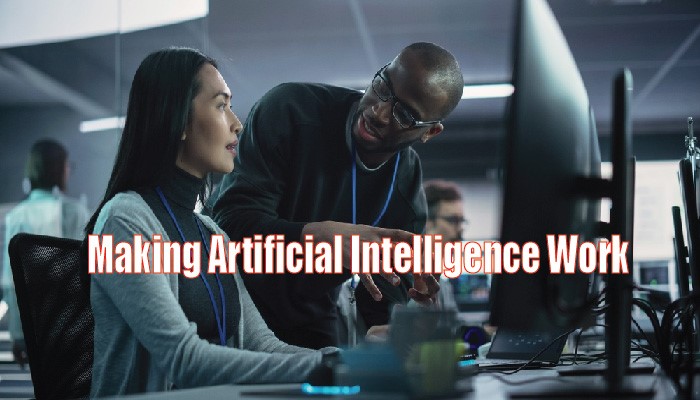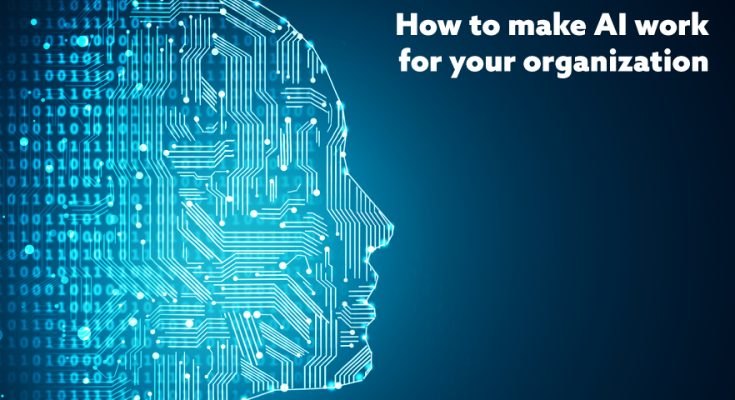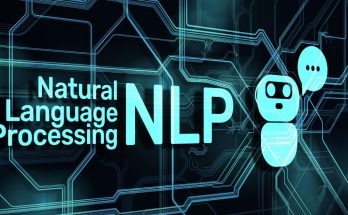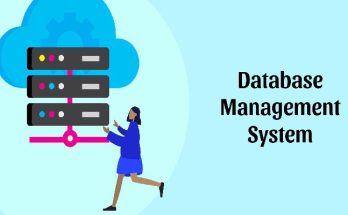Crafting Intelligence: A Guide to Making Artificial Intelligence Work for You
Welcome to the era where technology is not just advancing but also evolving: Artificial Intelligence (AI) has become more than a buzzword; it’s now a game-changer for businesses worldwide. Imagine having a powerful tool that can analyze data, automate processes, and even predict future trends – that’s AI for you! In this blog post, we will delve into the world of crafting intelligence and explore how to making artificial intelligence work wonders for your business. Let’s uncover the possibilities together!

The Benefits of Utilizing AI in Business
In today’s fast-paced digital world, the benefits of utilizing artificial intelligence (AI) in business are truly transformative. AI has the power to enhance decision-making processes, streamline operations, and drive innovation.
One key advantage of incorporating AI into business strategies is its ability to analyze vast amounts of data quickly and accurately. This enables businesses to gain valuable insights that can inform strategic decisions and improve efficiency.
Moreover, AI technology can automate routine tasks, freeing up employees to focus on more complex and creative work. By automating repetitive processes, businesses can increase productivity and reduce human error.
Additionally, AI-powered tools like chatbots and virtual assistants can enhance customer service experiences by providing instant responses and personalized support 24/7.
Leveraging the potential of AI in business empowers organizations to stay competitive in today’s dynamic marketplace while fostering growth and success.
Types of AI and their Applications
Artificial Intelligence (AI) comes in various forms, each with its unique capabilities and applications. One type is “Narrow AI,” which excels at specific tasks like language translation or image recognition. It’s the AI we encounter daily, from virtual assistants to recommendation algorithms.
Another type is “General AI,” also known as AGI, designed to understand and perform any intellectual task a human can do. While still theoretical, its potential implications are profound – think autonomous machines making complex decisions independently.
Then there’s “Machine Learning,” a subset of AI that focuses on training algorithms to learn patterns and make predictions without explicit programming instructions. This technology powers everything from self-driving cars to personalized product recommendations online.
Lastly, “Deep Learning” mimics how the human brain works by processing data through neural networks with multiple layers. Its applications range from facial recognition systems to medical diagnostics using imaging techniques.
How to Incorporate AI into Your Business Strategy
Incorporating AI into your business strategy can be a game-changer. Start by identifying areas where AI can add value, whether it’s in customer service, marketing, or operations.
Next, invest in the right technology and tools to support your AI initiatives. This might involve partnering with AI software providers or developing in-house solutions.
Additionally, ensure that your team is properly trained on how to use and leverage AI effectively. Education and up skilling are key components of successful integration.
Don’t forget about data – quality data is essential for training AI algorithms and making informed decisions based on insights generated by artificial intelligence.
Continuously monitor and evaluate the performance of your AI systems to make necessary adjustments and improvements over time. Flexibility and adaptability are crucial as you navigate the evolving landscape of AI technologies in the business world.
Common Challenges with Implementing AI
Implementing AI in a business can come with its fair share of challenges. One common hurdle is the lack of quality data to train AI models effectively. Without robust and clean data, the AI system may not perform as expected.
Another challenge is the cost associated with implementing AI technology. From acquiring the necessary hardware and software to hiring skilled professionals, the financial investment can be substantial for some businesses.
Additionally, resistance from employees who fear job displacement by AI systems can hinder successful implementation. It’s crucial for companies to provide proper training and education to help employees understand how AI can enhance their roles rather than replace them.
Moreover, ensuring compliance with regulations around data privacy and security poses another obstacle when integrating AI into existing business processes. Maintaining transparency and ethical use of data are vital considerations in navigating this challenge effectively.
Despite these hurdles, overcoming them through strategic planning, clear communication, and continuous learning opportunities can pave the way for successful integration of AI technologies within organizations.
Best Practices for Successful AI Integration
Implementing artificial intelligence into your business can be a game-changer, but it requires careful planning and execution. One of the best practices for successful AI integration is to start small and focus on specific areas where AI can bring immediate value. Identify key pain points or bottlenecks in your operations that AI can help alleviate.
Collaboration between different teams within your organization is crucial when integrating AI. Make sure there is clear communication and alignment on the goals and expectations of implementing AI technology. Training employees on how to work alongside AI systems effectively is also essential for successful integration.
Regular monitoring and evaluation of AI performance are necessary to ensure that it continues to meet your business objectives. Stay agile and be prepared to make adjustments as needed based on feedback and data analysis. Additionally, consider seeking external expertise or partnering with experienced AI providers to guide you through the integration process seamlessly.
By following these best practices, you can maximize the benefits of artificial intelligence in your business while minimizing potential challenges along the way.
The Future of AI and Its Impact on Businesses
As we look ahead to the future, the impact of AI on businesses is set to revolutionize operations. With advancements in machine learning and data analytics, AI will continue to streamline processes, boost productivity, and drive innovation across industries.
Businesses will increasingly rely on AI-powered tools for decision-making, customer insights, and personalized experiences. From predictive analytics to chatbots handling customer queries 24/7, the possibilities are endless.
As AI becomes more integrated into business strategies, companies can expect improved efficiency in resource allocation, enhanced scalability, and a competitive edge in a rapidly evolving market landscape. The ability of AI to adapt and learn from data will be crucial for staying relevant and agile in an ever-changing business environment.
Moreover, as businesses harness the power of AI-driven automation and optimization, they can unlock new revenue streams while delivering exceptional value to customers. Embracing this technology is not just about keeping up with trends but also about shaping the future of business success.
Conclusion
In today’s fast-paced business landscape, harnessing the power of artificial intelligence can truly revolutionize how companies operate and thrive. By understanding the benefits, types, challenges, and best practices associated with AI integration, businesses can pave the way for a successful future.
As technology continues to advance at lightning speed, adopting AI into your business strategy is no longer a choice but a necessity to stay competitive. Embracing this transformative technology will not only streamline processes and boost productivity but also unlock endless possibilities for innovation and growth.
So, take charge of your company’s trajectory by crafting intelligence through artificial intelligence. With strategic planning and seamless integration, you can leverage AI to propel your business forward into an era of limitless potential. The time to make artificial intelligence work for you is now – embrace it and watch your organization soar to new heights.



